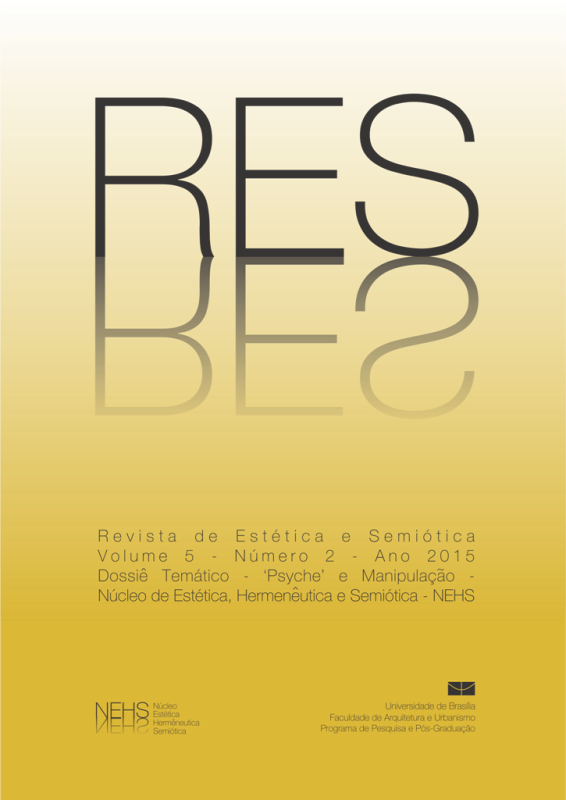EL PODER MANIPULADOR DE LAS RIQUEZAS: Reflexiones acerca del mito de Dánae y la tragedia Dánae de Eurípides
DOI:
https://doi.org/10.18830/issn2238-362X.v5.n2.2015.03Keywords:
Danae, Gold, Reclusion, Manipulation, AnachronismAbstract
Wealth, manifested gold and possessions, is a traditional tool for manipulating people. Greek myth gives many examples about the kind of situations can generate offering wealth. Political corruption or family betrayal are recurring consequences of the presence of gold in society and in core of the family. A particular case is the loving manipulation of a young maiden. Offering of gold for sexual intercourse is a central theme in the myth of Danae and in Euripides' play Danae whose fragments realize a tight agon on this topic. This paper attempts to present the lines of discussion of the power of wealth in Euripides' Danae from pointing out
the spaces that traditional mythic narrative leaves open for theatrical operation by the playwrite. This treatment is, in turn, a manipulation of myth and traditional épos through anachronisms that allow channeling the issue in the ways of V century BC Athenian society.
Downloads
References
CAREY, C. Lysias. Selected Speeches (edited with introduction and commentary). Cambridge University Press, Cambridge, 1989.
CATTANEO, G.. La Danae di Euripide. Edizione e commento dei frammenti, Tesi di laurea triennale in Filologia classica, Università degli Studi di Torino, Facoltà di Lettere e Filosofia, Anno Accademico 2011/2012, relatore prof. Gian Franco Gianotti. En prensa.
JOUAN, F.-van Looy, H. Euripide. Tome VIII. Les Fragments. Les Belles Lettres, Paris, 2000.
KANNICHT, R. Tragicorum Graecorum Fragmenta. Vol 5, 1-2: Euripides. Vandenhoeck & Ruprecht, Göttingen, 2004.
KARAMANOU, I. Euripides. Danae and Dictys. Introduction, Text and Commentary. Saur, München-Leipzig, 2006.
LSJ Greek English Lexicon. (9th edition) Oxford University Press, Oxford, 1996.
Sonnino, M. Euripidis Erechthei que exstant. Le Monnier, Firenze, 2010.
Fuentes secundarias
BUXTON, R. (2007). “Tragedy and Greek Myth. In Woodard”; In R. (ed.). The Combridge Companion to Greek Mythology. Cambridge University Press, Cambridge, pp. 166-189.
CAREY, C. (1990). “Rape and Adultery in Athenian Law”; In CQ, Cambridge 45, pp. 407 ”“ 417.
COHEN, D. (1995). Law, Violence and Community in Classical Athens. Cambridge University Press, Cambridge.
DOVER, K. (1974). Greek Popular Morality in the Time of Plato and Aristotle. Oxford University Press, Oxford.
LUCAS DE DIOS, J.M. (1993). “Le myth de Danaé et de Perseé chez Sophocle”; In MACHIN, A.-Pernée, L. (eds.) Sophocle. Le texte, les personnages. Publication de l’ Université de Provence, Aix-en-Provence, pp. 35-48.
MCHARDIE, F. (2008). “The 'trial by water' in Greek myth and literature”; In LICS, Leeds 7.1, pp. 1-20.
OGDEN, D. (2008). Perseus. Gods and Heroes in the Ancient World. Routledge, London-New York.
SEAFORD, R. (1990). “The Imprisonment of Women in Greek Tragedy”; In JHS, London 110, pp. 76-90.
SOMMERSTEIN, A. (2005). “Tragedy and Myth. In Bushnell”; In R. (ed.). A Companion to Tragedy. Blackwell, London, pp. 163-180.
VICTORIA, W. (1998). Intimate commerce: exchange, gender, and subjectivity in Greek Tragedy. University of Texas Press, Texas.




